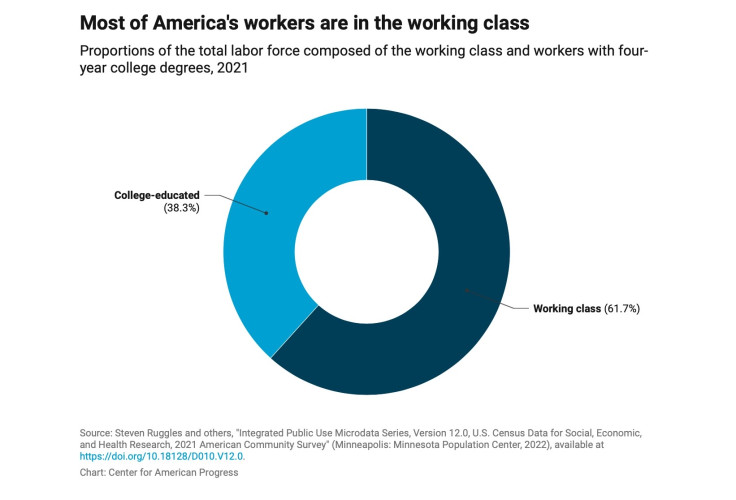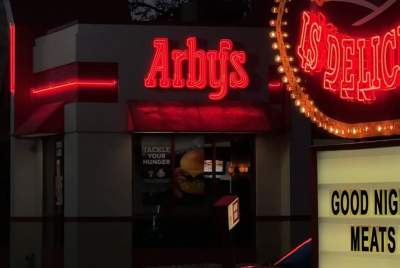'I Don't Want To Say The American Dream Is Dead': Entrepreneur Says Harris Presidency Will Harm Lower To Middle Class Americans
Almost 40% of US citizens describe themselves as "working" or "lower" class

As the 2024 election approaches, small business owners and entrepreneurs are increasingly concerned about what life might look like under a Kamala Harris presidency. Many fear that her economic policies could disproportionately impact lower- and middle-class Americans, threatening the very foundation of the American Dream.
The Struggles of America's Working Class
According to a 2024 Gallup study, 31% of Americans identify as "working" or "lower" class. This demographic has become increasingly diverse over the past 50 years, reflecting significant shifts in the nation's workforce composition. The most recent data from the 2021 American Community Survey (ACS) highlights this change, showing that workers of color now represent 45% of the working class, while women account for 44%. This shift underscores the growing challenges faced by a more diverse working class in today's economic landscape .
Concerns Over Harris's Economic Policies
In an interview on "The Big Money Show," Shawn Meaike, founder and CEO of Family First Life (FFL), expressed his concerns about the potential economic impact of a Harris presidency. He argued that Harris's proposed tax hikes and economic strategies could have dire consequences for small businesses and their employees.
"What people are not understanding is what... significant and actually ridiculous tax hike proposals mean for all of us, right?" Meaike said. "When you start looking at these businesses now... it sounds great to say, 'I'm going to tax the 1% or get this, or I'm going to get only these individuals,' but in reality, it impacts everyone."

Meaike emphasized that these policies could stifle growth and innovation, making it difficult for small businesses to thrive. "At the end of the day, all these restaurants, all these business owners, myself, profit-sharing, what we're doing... we can't do," he explained. "At the end of the day, the American Dream... I don't want to say the American Dream is dead — that's probably a little bit over the top — but what I can tell you is it's going to make it really difficult to navigate what you want to do with employees, for employees."
The Domino Effect on Small Businesses
Meaike further elaborated on the potential ripple effects of Harris's policies, particularly on staffing and resources. He shared a conversation with a restaurant owner who was struggling to keep his business afloat due to rising costs. "I was with a gentleman yesterday. He owns multiple restaurants. I said, 'What are you doing to stay alive?' What do they do? Cut staff. Cut resources. The valets up the street are laid off. The servers are laid off. The guys and girls who deliver the food are laid off," Meaike recounted. "So it's a trickle-down theory that's pretty significantly scary for me."
The entrepreneur warned that without a Trump presidency, the nation could continue down a dangerous path that would disproportionately hurt the most vulnerable. "If we don't have a Trump presidency, I think we continue to go the wrong way," he cautioned, adding that lower- and middle-class families would be hit the hardest by these economic shifts.
The Impact on Lower- and Middle-Class Families
Meaike's concerns extend beyond small businesses to the broader implications for American families. He pointed out the struggles his own family faced with inflation and job loss, emphasizing that "the most vulnerable people" are at the greatest risk. He highlighted the difficulties that even large corporations like McDonald's are facing in attracting customers, which in turn affects lower-wage workers.
"Ultimately, when you discuss how McDonald's is attempting to draw customers in, the company is essentially saying, 'It's difficult for you to come in and afford a meal.' How do people handle difficult situations? They take actions that they otherwise may not," he explained. Meaike worries that without significant changes, lower- and middle-class families will bear the brunt of the economic challenges exacerbated by Harris's potential presidency.
© Copyright IBTimes 2025. All rights reserved.






















